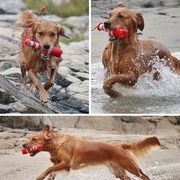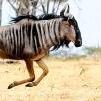Dyrenes empati, moral og kulturelle relasjoner
-
Hvem er aktive 0 medlemmer
- Ingen innloggede medlemmer aktive
-
Nye innlegg
-
Beklager først innlegg, trolig en hang up. Ja vet det er avtalebrudd, men oppdrettere har mye makt. Har selv vært ute for det selv. Og kjøpte valp derfra. Prisen sto der, og jeg bare nevnte at det var en høyere pris en retrieverklubben hadde. Fikk da beskjed om at ho hadde masse på venteliste så jeg fikk betale eller miste valpen...
-
Har ikke vært borti det selv personlig, men har hørt om andre som har det; og som da har betalt 'ekstra'. Dette har vært blandingsrase i tillegg. Men som Simira skriver, avtalebrudd ja.
-
Det er avtalebrudd. Jeg har aldri hørt om eller vært borti det, men hvis de har annonsert en "vare" til en pris så er de forpliktet til den prisen hvis de har inngått en avtale med kjøper uten at noe annet er nevnt. Hvis de FØR avtale om kjøp sier at annonsen bare er veiledende og valpen koster så mye mer så er det noe annet. Jeg ville uansett tenkt meg grundig om før jeg evt. kjøpte av en slik oppdretter.
-
Jeg har opplevd det selv, nær familie har opplevd det, og mange jeg kjenner. De er interessert i et kull, setter seg på valpeliste, blir godkjent som valpekjøpere, møter oppdretter. Oppdretter kyder av kjøper,og forteller at det er akkurat slike kjøpere hen er ute etter, og er veldig nøye med hvem hen selger til. Så skal valpen hentes, penger overleveres- og da har prisen vært en annen en det som sto i annonsen. Oppdretters unnskyldninger er: Det er veldig gode valper Alle andre tar de prisene Raseannonsen er bare veiledende De har så mange på liste at de velger de som betaler mest Og hvis en setter spørsmåltegn med det så: Ja hvis du ikke gidder å betale så mye så har jeg mange andre i kø Disse linjene selges ikke til hvilken som helst pris har du et problem med det så er du ikke rett kjøper.. Har dere vært borti dette?
-
Det kommer an på hunden, treningen og målet.Jeg vil alltid belønne innkalling og innkallingstrening med noe av de beste godbitene hunden kan få, fordi det er den absolutt viktigste treningen. Men belønning er ikke bare godbiter. Belønning er alt hunden vil ha. For noen hunder er det kos, mange liker leker, men godbiter er ofte den beste måten å belønne presist på. I valpe- og unghundtiden ville jeg alltid hatt en godbitpose tilgjengelig på meg, og gjerne en draleke/tauleke. De fleste som driver aktivt med hund bruker godbitposer som er enkle å åpen og lukke, og som flyttes over i lommen på det man har på deg. De første par årene er det mye godbiter "hele tiden", fordi hunden skal lære så mye nytt. Hva slags godbiter kommer an på hvor matfokusert hunden er og hva den liker. Her må du prøve deg fram litt. Til enkle hverdagsøvelser som "sitt", "gi labb" osv. kan du godt bruke tørrfõr fra dagens matrasjon hvis hunden er matglad. Godbiter fra butikk eller dyrebutikk er som oftest helt ok, men å skjære opp rent kjøtt fra påleggsskiver eller ost for eksempel er gjerne billigere. Rester av pannekaker, fiskepudding, pølser osv. er fint. Skinkeost på tube er en annen variant. Variasjon er også generelt fint. Ferske godbiter er ofte mer populært og sterkere enn tørre godbiter. Når valpen/hunden har lært en øvelse kan man fase ut belønningen, men det kan være lurt å belønne innimellom og forsterke øvelsene over tid. Om belønningene plutselig forsvinner kan hunden miste motivasjonen for det, om den ikke finner belønning i øvelsen i seg selv. Jeg belønnet fortsatt mine hunder på 13 og 17 for innkalling (alltid), og innimellom for kontakt, lydighetsøvelser osv., men ikke hver gang slik jeg ville gjort med en valp eller unghund for eksempel.
-
-
Nylig opprettede emner




Recommended Posts
Join the conversation
You can post now and register later. If you have an account, sign in now to post with your account.